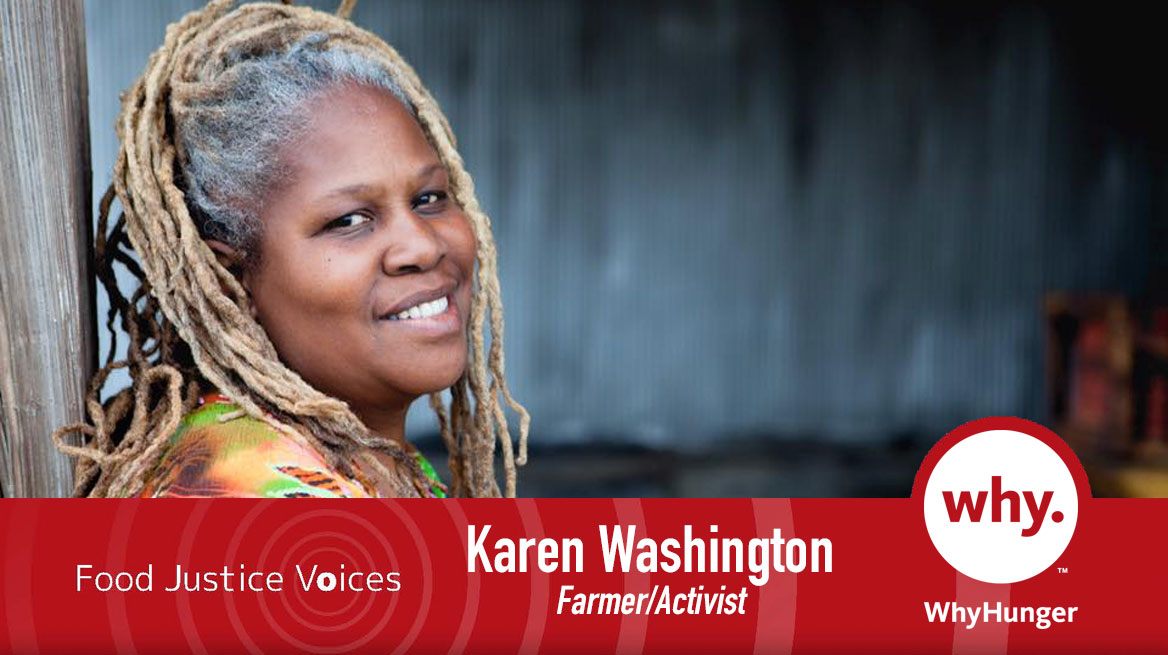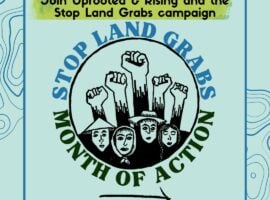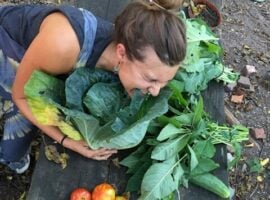In the latest installment of our Food Justice Voices series, where we amplify the voices of grassroots leaders and provide a source of valuable information on the intersection of food security and social justice, we spoke with farmer and community activist Karen Washington to learn more about her role in the BIPOC food justice movement.
Karen Washington’s journey in community food began when she joined a neighbor in turning an empty lot in her Bronx, NY neighborhood into a community garden in 1988. Since then, she has co-founded Black Urban Growers (BUGS), an organization supporting Black growers in urban and rural settings, is a co-owner and organic farmer at Rise and Root Farm, a five-acre farm rooted in the power of food as healing, has been named one of Ebony Magazine’s 100 most influential African-Americans in the country, and is a recipient of the James Beard Leadership Award. She is also on WhyHunger’s Advisory Board. Washington believes in the power of community food to actively dismantle years of injustices done to Black, Indigenous & People of Color, and to create a more equitable and culturally appropriate food system.
“Food justice is not a passive movement. If you are actively working on food justice, you have to be actively working on dismantling the injustices that you see. The injustices that fall along race, gender, land acquisition, land grabbing, job opportunities, wealth, etc.,” Washington explains in the video that food justice and food sovereignty cannot be achieved until Black voices and knowledge are brought to the forefront of our food system, and until people are actively engaged, contributing to the community, and speaking out against injustices.
For the BIPOC community, growing their own food and reclaiming land that was once taken from their ancestors means strengthening their wealth and honoring the cultural and spiritual knowledge of their people. At Rise and Root Farm, Washington and her co-founders engage local BIPOC and LGBTQ+ communities in a variety of events and work to foster a supportive and empowered agricultural space for individuals to connect and grow – all for the end goal of supporting the well-being of these communities and ensuring their access to fresh, nutritious food.
In BIPOC Knowledge & Power in the Food Justice Movement, Washington explains in her own words why bringing BIPOC knowledge back to the food system and relying on young generations to use their voices will be the driving force of the food justice movement. As a parting message to young people, Washington challenges youth to question the status quo, embrace their power and heritage and engage in self-care – the movement for justice in our food system is a long one, and paying attention to oneself is essential for nurturing the power necessary to make real change.
Watch BIPOC Knowledge & Power in the Food Justice Movement below!






